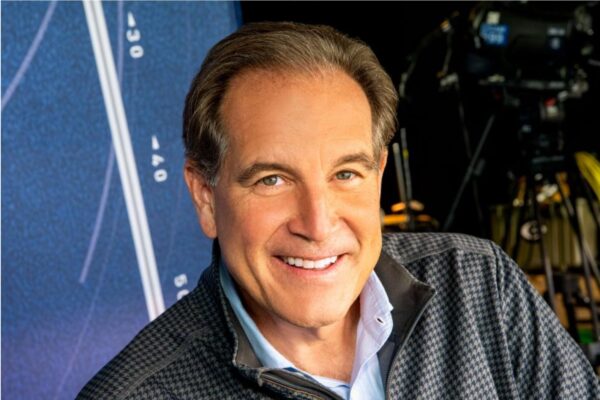By Maurice Kirby | @MoKirby_31
Sports Capital Journalism Program
INDIANAPOLIS – One of the most interesting options explored by the independent Commission on College Basketball is the recommendation that student-athletes could maintain their eligibility if they are not selected in the National Basketball Association draft.
The Commission, chaired by former Secretary of State Condoleezza Rice, recommended that high school and college players who declare for the draft and are undrafted remain eligible for college basketball unless or until they sign a professional contract.
“Elite high school and college basketball players tend to misjudge their professional prospects,” Rice said Wednesday morning. “… Entering the NBA draft is not the kind of misjudgment that should deprive student-athletes of the valuable opportunity to enter college or to continue in college while playing basketball.”
Rice acknowledged that an altered structure would require the help of the National Basketball Association and the National Basketball Players Association. Under the current structure, undrafted players become free agents. The recommendation calls for players returning to school to lose their eligibility to play in the NBA until the following year’s draft.
If the details can be worked out, this seems like a workable solution. You allow prospects to be able to gauge where they are at through the evaluation and draft process while being able to continue their education if they are not selected. The NCAA would move away from penalizing athletes who may have been listening to bad advice, or simply allow athletes to continue to plan their future beyond the sport and allow them to return to school.
One problem that the NCAA and the NBA could encounter is the number of applicants in any given year. There is nothing that would prohibit every player in NCAA and high school to apply for the draft. Every year, every player could use this knowing they have a safety net.
There is also the question of how college coaches would react.
College programs would face the challenge of recruiting players while not knowing if players from the previous season would return to campus. A player that is not viewed as an elite-level talent could test the waters, perform better than expected, leave college unexpectedly and put his old team at a disadvantage.
If a college player is expected to be drafted and suddenly returns to school after not being selected, incoming freshmen who made a decision based on the anticipation of playing time could face a frustrating start to their college career.
The result could be the continuation of the trend of a high number of players transferring schools, because the process of getting as much information as possible will be pushed late into the summer. A condition of the Commission’s recommendation is that players must return to the same school they attended when entering the draft process.
What would then happen to those graduate transfers who are eligible to transfer after completing their degree? Would that mean they would not have the right to test their opportunity in the pros and immediately pick a school? Or would the NCAA allow them to keep the remaining eligibility after graduation and transfer to another program?
Allowing players to continue to gain more knowledge about their professional careers while maintaining eligibility is a huge step. Even though this will need help from forces out side of the NCAA jurisdiction it is one of the options with the most benefit to the student-athletes.
NCAA President Mark Emmert said it may be a little ambitious, but the goal is to have all the recommendations implemented by August. With such a quick turnaround there are problems that may come along or simply become overlooked.
The turning point would be next year around this time as players are getting ready to make their move. NCAA officials, coaches and other stakeholders will be watching closely as the landscape shifts. Next summer may well become one for the ages as they work to establish what aspects of the plan did or did not work and find the necessary solutions.
A small step forward was taken in an attempt to do right by the student-athletes. The question is whether the industry can create a sustainable model.
Maurice Kirby, a graduate student in the Sports Capital Journalism Program at IUPUI, was a member of the men’s basketball team during the 2017-18 season after earning a degree from Loyola Chicago.


